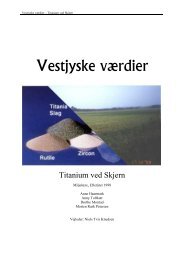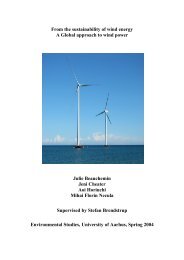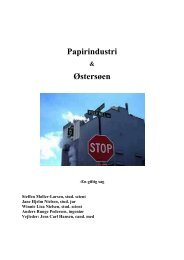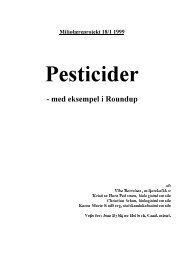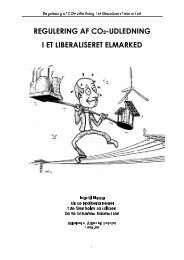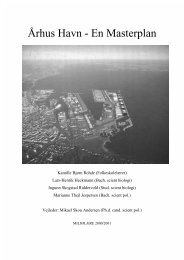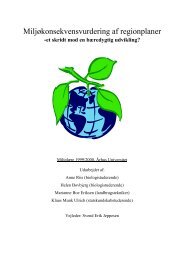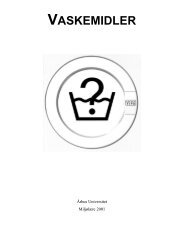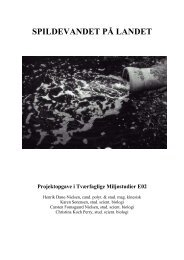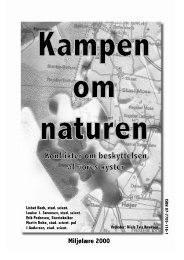University of Aarhus ECOTOURISM AS A WAY TO PROTECT ...
University of Aarhus ECOTOURISM AS A WAY TO PROTECT ...
University of Aarhus ECOTOURISM AS A WAY TO PROTECT ...
You also want an ePaper? Increase the reach of your titles
YUMPU automatically turns print PDFs into web optimized ePapers that Google loves.
Ecotourism as a sustainable way to protect nature<br />
sectors in order to get to know the market better, upgrade knowledge in tourist<br />
operation and management.<br />
In Namibia, CBE provides a linkage between communities with outside<br />
agencies and operators. Local communities are assistance through training,<br />
business advice, marketing, advocacy and funding. In addition, a central<br />
booking and information system has also been established. Finally, the<br />
ecotourism project in Namibia shows that wildlife numbers, including black<br />
rhino and elephant, have increased significantly since the community approach<br />
have been adopted (WWF, 2001).<br />
In participatory democracy theory, it has also been mentioned that: "the<br />
more individuals participate the better able they become to do so" (Diduck<br />
1999). Amanda (2001) has also argued that if ecotourism industry were to<br />
provide the right inputs, such as “a participatory approach” then the negative<br />
impacts <strong>of</strong> tourism on the local hosts could be reduced. Anthropologists have<br />
discussed the role <strong>of</strong> local participation in the planning and management <strong>of</strong><br />
protected areas. They strongly claim that without the consent <strong>of</strong> the local<br />
communities, protected areas could not be managed effectively (Benjamin &<br />
Brush, 1996). Again, Scheyvens (1999) has emphasised the empowerment <strong>of</strong><br />
local communities in decision-making in ecotourism projects. It includes<br />
economic empowerment, psychological empowerment, social empowerment,<br />
and political empowerment.<br />
In addition, through tourism activities, visitors learn not only much from<br />
nature, human culture etc. but they also contribute in conserving protected areas<br />
(Megan). It includes helping protected areas generate revenue, direct corporate<br />
donations and researches, mount-advertisement etc. and sometimes gives very<br />
good comments on how to improve the ecotourism in detail.<br />
35



